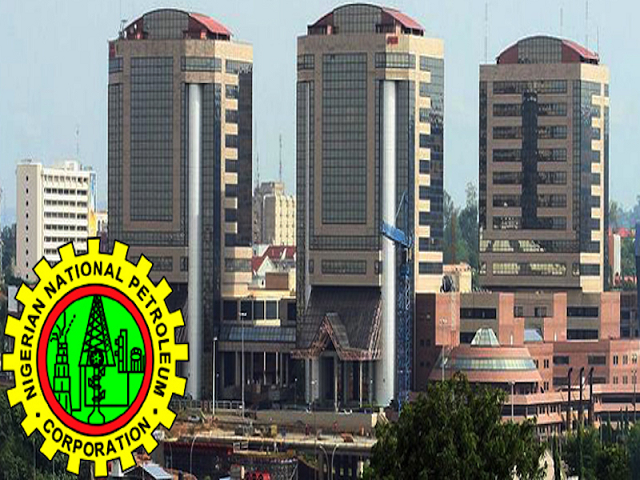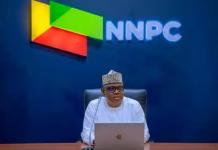- $9bn judgment Debt: UK firm deepens move to seize Nigeria’s assets in US, UK
An Arbitral Tribunal sitting at the Lagos Court of Arbitration has awarded the federal government a whopping $1.69 billion in a dispute between the Nigerian Petroleum Development Company (NPDC) Limited and Atlantic Energy Drilling Concepts Nigeria Limited and Atlantic Energy Brass Development Ltd.
The landmark award in favour of the government came just as reports revealed that the protracted legal battle between a British firm, Process and Industrial Developments Limited (P & ID) and the Nigerian Government has taken a turn for the worst as the foreign firm, which won a staggering judgment, now worth $9 billion against Nigeria is trying to confirm the award in courtrooms in the United States and London, which would allow it (P&ID) to start seizing Nigerian assets in the U.S. and the U.K.
The arbitral proceedings in Nigeria was instituted by the claimants, Atlantic Energy Drilling Concepts Nigeria Limited and Atlantic Energy Brass Development Limited) on August 15, 2016, against the NPDC.
In resolving the dispute in favour of NPDC, the Arbitral Tribunal dismissed Atlantic Energy’s claims and awarded the sum of US$1,690,900,391.39, US$200,000 and N1,500,000 as costs in favour of NPDC.
It directed that the amount be paid within 21 days from the date of the Award for crude oil lifted from OMLs 26, 30, 34 and 42 (Forcados Assets) and OMLs 60, 61, 62 and 63 (Brass Assets).
The tribunal affirmed all the submissions of the lead counsel to NPDC, Professor Fabian Ajogwu (SAN) of Kenna Partners, who held that Atlantic Energy and its sister companies were indebted to NPDC for their failure to perform their financial obligations under the respective Strategic Alliance Agreements (SAAs).
The dispute started when NPDC entered into several SAAs with Atlantic on April 20, 2011, May 25, 2011 and 2012 for the development and production of hydrocarbon resources with respect to OMLs 26, 30, 34 and 42 (Forcados Assets) and OMLs 60, 61, 62 and 63 (Brass Assets).
The SAAs created obligations for Atlantic Energy to remit to the government the revenues from the crude oil lifted.
Ajogwu in his submission relied heavily on the KPMG Audit Report of the crude oil liftings in OMLs 26, 30, 34 and 42 (Forcados Assets) and OMLs 60, 61, 62 and 63 (Brass Assets); and dwelt on the principle of avoidance of unjust enrichment by the Atlantic Energy of the petroleum assets of the federal government-owned NPDC.
This landmark decision is one of the single largest awards ever in a Nigerian Arbitration and also settles the question of impact of non-payment of signature fees on lifted crude oil as well as the principles of Unjust Enrichment in Crude oil lifting and recovery.
Atlantic Energy & Atlantic Brass were represented by their counsel, Mr. Babatunde Fagbohunlu, SAN, from the law firm of Aluko & Oyebode.
Meanwhile, the a$9 billion judgement debt against Nigeria, arose from her alleged failure to perform its contractual obligations under a gas supply and processing agreement it signed with P & ID during the regime of the late President Umar Y’Adua snowballed into $9 billion as a result of $2.3 billion interest calculated at seven per cent ($1.2million) a day from the date the decision was rendered by an arbitration tribunal in the UK.
The latest move to recover the debt followed the late last year’s acquisition of large stake in P&ID by a hedge fund managed by UK based VR Capital Group.
With this development, the gas company is trying to pull levers of power in the U.S. and the U.K. to make Nigeria settle the judgement debt, failing which, the gas company will start seizing the country’s assets.
According to Bloomberg, P&ID, owned by the hedge fund and a firm called Lismore Capital Ltd., late last year hired lobbyists, lawyers, and a public-relations firm. The attorneys, according to the report, are trying to confirm the award in courtrooms in Washington and London, which would allow P&ID to start seizing Nigerian assets in the U.S. and the United Kingdom.
P&ID, founded by Irishmen Michael Quinn and Brendan Cahill had in 2010, entered into a 20-year gas and supply processing agreement (GSPA) with the Federal Government of Nigeria to build a state-of-the-art gas processing facility.
The plant, in which Nigeria was to have a 10 percent stake, was to refine associated natural gas into non-associated natural gas to power the national electric grid.
Under the agreement, government was to supply between 150 million standard cubic feet of the gas per day to P&ID — a figure expected to rise to 400 million scf in the life of the project from the gas being flared by oil-producing companies in the country.
The GSPA also required the government to build a gas supply pipeline to the P&ID facility.
But the UK firm claimed that after spending over $40 million in preparatory work, the project collapsed as the Nigerian government failed to build a pipeline as stipulated in the agreement.
The failure to resolve the dispute even after the foreign firm proposed an amendment to the agreement, prompted it (P&ID) to commence arbitration against Nigeria in August 2012 in London, UK.
The dispute was resolved in favour of P&ID in July 2015.
In December 2015, the Nigerian Government appealed the ruling, asking the tribunal to set aside the award completely.
Nigeria’s contention, among others, was that the arbitration seat should be in Nigeria and not UK and that the judgement sum is too big and should be withdrawn.
Besides, the Nigerian government had argued that the petroleum ministry didn’t have the authority to enter into the agreement and the arbitration panel used the wrong legal standard.
The matter was decided in favour of the foreign firm as the tribunal in January 2017, finally ordered Nigeria to pay P&ID $6.6 billion in damages and $2.3 billion in interest.
In June 2018, the US district court also ruled in favour of P&ID and affirmed the award by the UK tribunal, thereby making it enforceable in America.
Nigeria filed a notice of appeal in the US district court in October 2018, claiming foreign sovereignty immunity. But the US court rejected Nigeria’s request to cancel the award, and the government headed to the UK court to get the sanctions waived.
The federal government has however assured of its intention to diligently defend its interest in the case between it P&ID over the dispute arising from the twenty years Gas Supply and Processing Agreement










